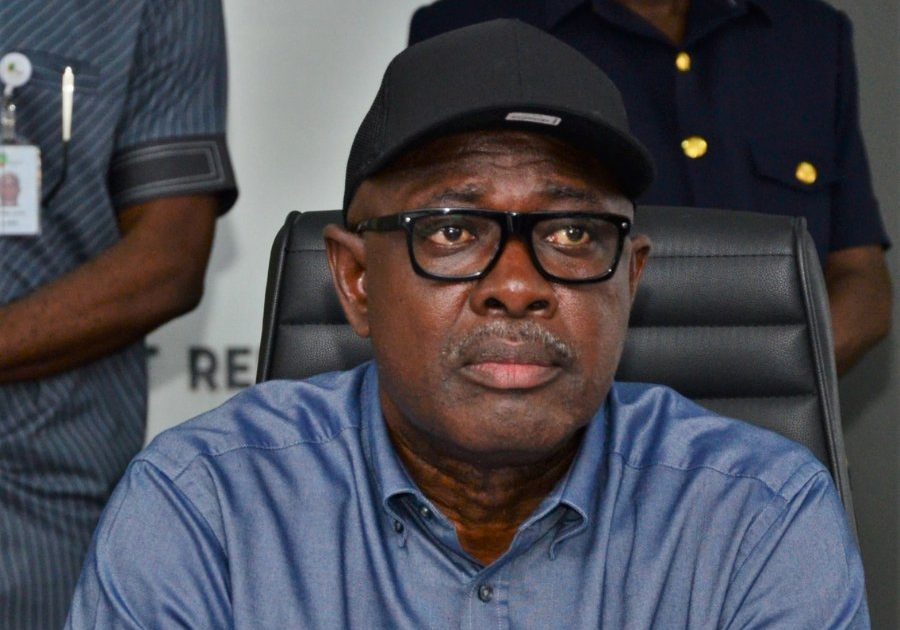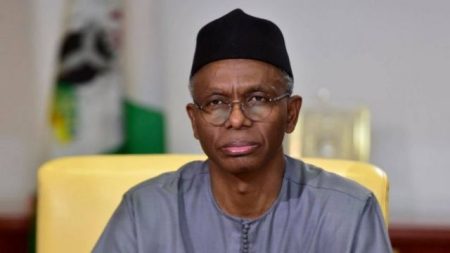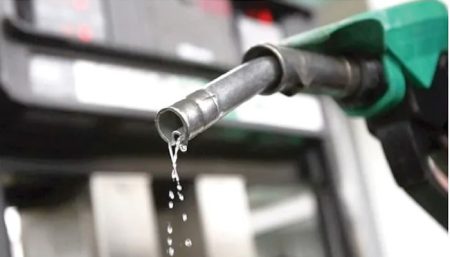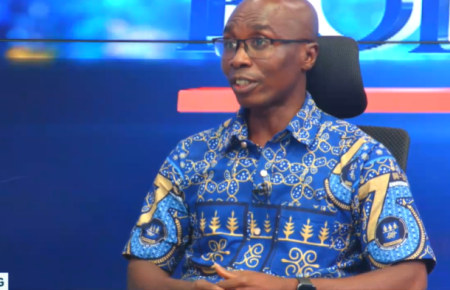Nigeria’s oil production capabilities and the government’s push for increased output took center stage at a recent Cross Industry Group meeting in Florence, Italy. Senator Heineken Lokpobiri, the Minister of State for Petroleum Resources (Oil), delivered a stern message to International Oil Companies (IOCs) operating in Nigeria: utilize existing oil blocks or risk losing them. This “drill or drop” ultimatum underscores the government’s commitment to reaching its ambitious production target of 2.06 million barrels per day by 2025, a significant increase from the current reported production of 1.67 million barrels per day. Lokpobiri emphasized that the government is ready to reclaim undeveloped assets held for extended periods and reassign them to companies willing to invest and boost production. This decisive stance aims to address the issue of idle assets that hinder the country’s economic growth and revenue generation potential. The Florence meeting served as a platform for frank discussions on the challenges and opportunities within Nigeria’s oil and gas sector.
The minister’s warning to revoke licenses of unproductive oil blocks highlights the government’s growing impatience with the slow pace of development in the sector. He stressed that holding onto undeveloped assets benefits neither the companies nor the Nigerian economy. The minister urged IOCs to actively explore collaborative solutions, such as asset sharing, farm-out agreements, or releasing underutilized blocks to more active players. He specifically encouraged farm-out agreements for assets located near existing infrastructure to reduce costs associated with new floating production storage and offloading units. This pragmatic approach aims to optimize resource utilization and encourage swift development of existing resources, thereby boosting overall production. The government has signaled its commitment to supporting the sector by implementing investment-friendly fiscal policies and incentives, notably the President’s executive order incentivizing deepwater investments. The onus now, Lokpobiri emphasized, is on the IOCs to reciprocate with concrete investment decisions that translate into tangible production increases.
A key point of discussion at the meeting was the need for IOCs to support local refining efforts. With more refineries coming online, securing a consistent crude oil supply is crucial. The minister underlined the importance of increased oil production not only to fulfill international commitments but also to adequately supply the burgeoning domestic refining capacity. This dual focus highlights the government’s strategy to maximize the value derived from its oil resources, both for export revenue and domestic energy security. The minister addressed the concerns raised by IOCs regarding challenges with Engineering, Procurement, and Construction (EPC) contractors, arguing that EPC commitment is contingent on seeing firm investment decisions from the oil companies themselves. This perspective clarifies the interconnectedness of the various stakeholders in the industry and the importance of aligned action to drive progress.
The Chairman of the Oil Producers Trade Section (OPTS), Mr. Osagie Osunbor, acknowledged the government’s proactive engagement with industry players and its dedication to fostering a favorable investment climate. He expressed appreciation for the Minister’s direct engagement and insights, which serve as a call to action for increased production efforts by the operators. This positive feedback from the industry indicates a potential for collaborative efforts between the government and IOCs to realize the shared goal of increased oil production. The meeting provided a valuable platform for open dialogue, setting the stage for potential solutions to long-standing challenges in the Nigerian oil sector.
However, recent reports highlight a complex production landscape. Bloomberg data reveals that Nigeria implemented the largest oil production cut among OPEC members in March, reducing output by 50,000 barrels per day to adhere to its OPEC quota of 1.5 million barrels per day. This move aligns with OPEC’s overall strategy of tightening quotas to manage global oil prices. The reduction in Nigeria’s production follows operational disruptions at the Trans-Niger Pipeline, a vital artery for the country’s crude oil exports. The pipeline explosion and subsequent delays in loading Bonny Light crude underscore the vulnerability of Nigeria’s oil infrastructure to disruptions, further complicating efforts to achieve production targets. This incident highlights the challenges faced by Nigeria in maintaining a stable and predictable oil production output.
While Nigeria grapples with production challenges, the broader OPEC+ alliance, led by Saudi Arabia and Russia, is poised to gradually increase oil supply to stabilize global prices. The planned phased increase, expected to add approximately 138,000 barrels per day this month, extends through late 2026. This global context adds another layer of complexity to Nigeria’s production strategy. While Nigeria has made cuts in line with OPEC quotas, the overall direction of OPEC+ suggests a move towards increased production, potentially creating a conflicting dynamic. The Nigerian government’s push for increased production from its IOCs must be balanced against the fluctuating global oil market and the need to adhere to international agreements within OPEC. Navigating this intricate landscape will be crucial for Nigeria to optimize its oil resources and maximize economic benefits. The Florence meeting, therefore, served as a critical juncture, allowing for candid discussions between the government and IOCs, setting the stage for future collaboration and a concerted effort to unlock the full potential of Nigeria’s oil and gas sector.














